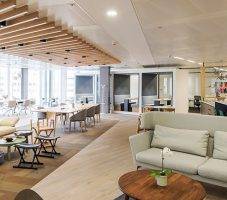August 18, 2016
Uncompromising job candidates’ demands don’t include flexible work 0
 Job candidates are becoming more demanding claims a new survey, with three quarters (79.2 percent) of UK workers polled not willing to compromise on certain areas when looking for a new role. Unsurprisingly, 18.2 percent say that a low advertised salary would put them off a role entirely, but other less tangible issues would also dissuade them from pursuing an application. This includes unclear job descriptions (20 percent) and a long recruitment process (10.2 percent); while 7.8 percent revealed that poor communication throughout the recruitment process would drive them away from a company. The research, which was conducted by CV-Library, surveyed 1,000 UK workers and found that candidates are growing increasingly impatient with their job hunt. Other key deterrents cited were poor traits about the businesses themselves, including a bad reputation (9.5 percent), a high staff turnover (7.1 percent) and poor management (6.1 percent).
Job candidates are becoming more demanding claims a new survey, with three quarters (79.2 percent) of UK workers polled not willing to compromise on certain areas when looking for a new role. Unsurprisingly, 18.2 percent say that a low advertised salary would put them off a role entirely, but other less tangible issues would also dissuade them from pursuing an application. This includes unclear job descriptions (20 percent) and a long recruitment process (10.2 percent); while 7.8 percent revealed that poor communication throughout the recruitment process would drive them away from a company. The research, which was conducted by CV-Library, surveyed 1,000 UK workers and found that candidates are growing increasingly impatient with their job hunt. Other key deterrents cited were poor traits about the businesses themselves, including a bad reputation (9.5 percent), a high staff turnover (7.1 percent) and poor management (6.1 percent).









 According to new research from the Chartered Institute of Personnel and Development, the number of people saying that they have experienced mental health issues while in employment has climbed from a quarter to a third over the last five years. Despite this, the majority of employees still don’t feel that people experiencing mental health issues are supported well enough at work. In response, the CIPD is calling on organisations to take a more preventative approach to employees’ mental wellbeing, encouraging a culture of openness in their workplace, whilst at the same time, training line managers to provide and signpost support for employees, in order to create healthier, more engaged and more productive workplaces. The new research from the CIPD claims that in 2016, almost a third (31 percent) of the over 2,000 employees surveyed said they have experienced a mental health problem at some point during their working life, compared with a quarter (26 percent) in 2011.
According to new research from the Chartered Institute of Personnel and Development, the number of people saying that they have experienced mental health issues while in employment has climbed from a quarter to a third over the last five years. Despite this, the majority of employees still don’t feel that people experiencing mental health issues are supported well enough at work. In response, the CIPD is calling on organisations to take a more preventative approach to employees’ mental wellbeing, encouraging a culture of openness in their workplace, whilst at the same time, training line managers to provide and signpost support for employees, in order to create healthier, more engaged and more productive workplaces. The new research from the CIPD claims that in 2016, almost a third (31 percent) of the over 2,000 employees surveyed said they have experienced a mental health problem at some point during their working life, compared with a quarter (26 percent) in 2011.




 SMEs that neglect to offer flexible work options may find their employees decide to switch to somewhere that does, according to a survey from
SMEs that neglect to offer flexible work options may find their employees decide to switch to somewhere that does, according to a survey from 
















June 18, 2016
Productive workplaces + Long hours link to ill health + Coworking rise 0
by Sara Bean • Cities, Comment, Environment, Facilities management, Flexible working, Furniture, Newsletter, Technology, Wellbeing, Workplace